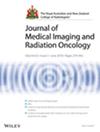Voxel-Based Dosimetry as a Means for Treatment Personalisation in Radioembolization: A Systematic Review
Abstract
Introduction
Radionuclide therapy including 90Y radioembolization is an established form of brachytherapy for treatment of malignancy including hepatocellular carcinoma. Currently, there are several methods available to estimate patient absorbed dose, including voxel-based dosimetry, that can achieve a level of personalisation in the planning and outcome assessments of radioembolization. Despite the advantages of voxel-based dosimetry, it remains a relatively new concept in radioembolization. This study evaluates if voxel-based dosimetry was associated with improved treatment efficacy in radioembolization planning.
Methods
A systematic review was conducted by searching relevant databases (Medline Ovid, PubMed, Embase Ovid, CINAHL Complete, Cochrane Library, CENTRAL, Australian New Zealand Clinical Trials Registry, ClinicalTrials.gov, WHO International Trials Registry, Google Scholar) for literature regarding voxel-based dosimetry in radioembolization.
Results
A total of 41 papers were included for this systematic review. Review of these studies revealed that voxel-based dosimetry can benefit numerous aspects of radioembolization in radionuclide therapy including predicting tumour response, toxicity and patient survival. Numerous studies also indicated that voxel-based dosimetry in radioembolization is a more accurate approach in establishing a dose-effect relationship in targeted radionuclide therapy when compared to other methods. Despite these promising findings, these studies did not investigate or comment on the accuracy of voxel-based dosimetry.
Conclusion
The evidence from this review highlights that voxel-based dosimetry can improve treatment efficacy in radioembolization planning. However, further studies are required to validate the accuracy and feasibility of voxel-based dosimetry in clinical practice.

 求助内容:
求助内容: 应助结果提醒方式:
应助结果提醒方式:


